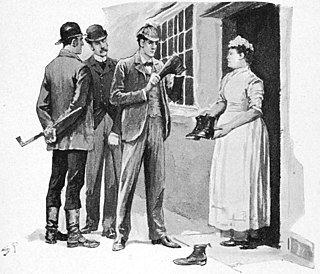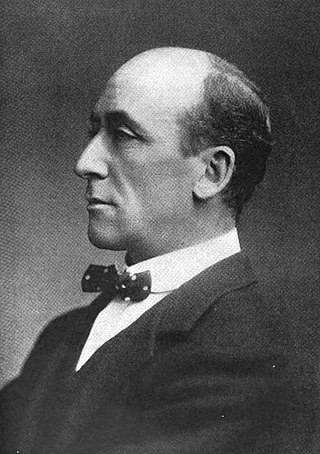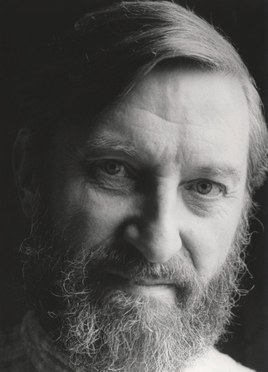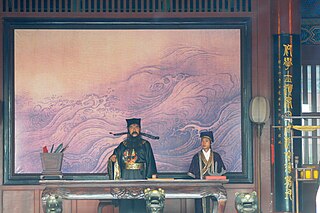Related Research Articles

Detective fiction is a subgenre of crime fiction and mystery fiction in which an investigator or a detective—whether professional, amateur or retired—investigates a crime, often murder. The detective genre began around the same time as speculative fiction and other genre fiction in the mid-nineteenth century and has remained extremely popular, particularly in novels. Some of the most famous heroes of detective fiction include C. Auguste Dupin, Sherlock Holmes, and Hercule Poirot. Juvenile stories featuring The Hardy Boys, Nancy Drew, and The Boxcar Children have also remained in print for several decades.

Crime fiction, detective story, murder mystery, mystery novel, and police novel are terms used to describe narratives that centre on criminal acts and especially on the investigation, either by an amateur or a professional detective, of a crime, often a murder. It is usually distinguished from mainstream fiction and other genres such as historical fiction or science fiction, but the boundaries are indistinct. Crime fiction has several subgenres, including detective fiction, courtroom drama, hard-boiled fiction, and legal thrillers. Most crime drama focuses on crime investigation and does not feature the courtroom. Suspense and mystery are key elements that are nearly ubiquitous to the genre.

Ellery Queen is a pseudonym created in 1928 by the American detective fiction writers Frederic Dannay (1905–1982) and Manfred Bennington Lee (1905–1971). It is also the name of their main fictional detective, a mystery writer in New York City who helps his police inspector father solve baffling murder cases. From 1929 to 1971, Dannay and Lee wrote around forty novels and short story collections in which Ellery Queen appears as a character.

Algernon Henry Blackwood, CBE was an English broadcasting narrator, journalist, novelist and short story writer, and among the most prolific ghost story writers in the history of the genre. The literary critic S. T. Joshi stated, "His work is more consistently meritorious than any weird writer's except Dunsany's" and that his short story collection Incredible Adventures (1914) "may be the premier weird collection of this or any other century".

The "locked-room" or "impossible crime" mystery is a type of crime seen in crime and detective fiction. The crime in question, typically murder, is committed in circumstances under which it appeared impossible for the perpetrator to enter the crime scene, commit the crime, and leave undetected. The crime in question typically involves a situation whereby an intruder could not have left; for example the original literal "locked room": a murder victim found in a windowless room locked from the inside at the time of discovery. Following other conventions of classic detective fiction, the reader is normally presented with the puzzle and all of the clues, and is encouraged to solve the mystery before the solution is revealed in a dramatic climax.

Mystery is a fiction genre where the nature of an event, usually a murder or other crime, remains mysterious until the end of the story. Often within a closed circle of suspects, each suspect is usually provided with a credible motive and a reasonable opportunity for committing the crime. The central character is often a detective, who eventually solves the mystery by logical deduction from facts presented to the reader. Some mystery books are non-fiction. Mystery fiction can be detective stories in which the emphasis is on the puzzle or suspense element and its logical solution such as a whodunit. Mystery fiction can be contrasted with hardboiled detective stories, which focus on action and gritty realism.

Crime fiction is a typically 19th-, 20th- and 21st-century genre, dominated by British and American writers. This article explores its historical development as a genre.

Michael Joseph Connelly is an American author of detective novels and other crime fiction, notably those featuring LAPD Detective Hieronymus "Harry" Bosch and criminal defense attorney Mickey Haller. Connelly is the bestselling author of 38 novels and one work of non-fiction, with over 74 million copies of his books sold worldwide and translated into 40 languages. His first novel, The Black Echo, won the Mystery Writers of America Edgar Award for Best First Novel in 1992. In 2002, Clint Eastwood directed and starred in the movie adaptation of Connelly's 1997 novel, Blood Work. In March 2011, the movie adaptation of Connelly's novel The Lincoln Lawyer starred Matthew McConaughey as Mickey Haller. Connelly was the President of the Mystery Writers of America from 2003 to 2004.

Henry Reymond Fitzwalter Keating was an English crime fiction writer most notable for his series of novels featuring Inspector Ghote of the Bombay CID.
An inverted detective story, also known as a "howcatchem", is a murder mystery fiction structure in which the commission of the crime is shown or described at the beginning, usually including the identity of the perpetrator. The story then describes the detective's attempt to solve the mystery. There may also be subsidiary puzzles, such as why the crime was committed, and they are explained or resolved during the story.

Occult detective fiction is a subgenre of detective fiction that combines the tropes of the main genre with those of supernatural, fantasy and/or horror fiction. Unlike the traditional detective who investigates murder and other common crimes, the occult detective is employed in cases involving ghosts, demons, curses, magic, vampires, undead, monsters and other supernatural elements. Some occult detectives are portrayed as being psychic or in possession of other paranormal or magical powers.
Otto Penzler is an American editor of mystery fiction, and proprietor of The Mysterious Bookshop in New York City.

Henry Slesar was an American author and playwright. He is famous for his use of irony and twist endings. After reading Slesar's "M Is for the Many" in Ellery Queen's Mystery Magazine, Alfred Hitchcock bought it for adaptation and they began many successful collaborations. Slesar wrote hundreds of scripts for television series and soap operas, leading TV Guide to call him "the writer with the largest audience in America."
Everett Franklin Bleiler was an American editor, bibliographer, and scholar of science fiction, detective fiction, and fantasy literature. In the late 1940s and early 1950s, he co-edited the first "year's best" series of science fiction anthologies, and his Checklist of Fantastic Literature has been called "the foundation of modern SF bibliography". Among his other scholarly works are two Hugo Award–nominated volumes concerning early science fiction—Science-Fiction: The Early Years and Science-Fiction: The Gernsback Years—and the massive Guide to Supernatural Fiction.

Darkly Dreaming Dexter is a 2004 novel by Jeff Lindsay, the first in his supernatural crime horror series about American forensic analyst/serial killer Dexter Morgan. It formed the basis of the Showtime television series Dexter and won the 2005 Dilys Award and the 2007 Book to TV award.
Michael Raymond Donald Ashley is a British bibliographer, author and editor of science fiction, mystery, and fantasy.

Cop Hater (1956) is the first 87th Precinct police procedural novel by Ed McBain. The murder of three detectives in quick succession in the 87th Precinct leads Detective Steve Carella on a search that takes him into the city's underworld and ultimately to a .45 automatic aimed straight at his head.

Cop Hater is a 1958 American crime film noir police procedural film based on the 1956 novel Cop Hater written by Ed McBain, the first in a series of books about the 87th Precinct in New York City. The film was produced and directed by William Berke, written by Henry Kane and stars Robert Loggia and Gerald O'Loughlin.
Joe McKinney was a San Antonio–based author and Patrol Supervisor with the San Antonio Police Department.

Gong'an or crime-case fiction is a subgenre of Chinese crime fiction involving government magistrates who solve criminal cases. Gong'an fiction first appeared in the colloquial stories of Song dynasty. Gong'an fiction was then developed and become one of the most popular fiction styles in Ming and Qing dynasties. The Judge Dee and Judge Bao stories are the best known examples of the genre.
References
- ↑ Marcie's murder in libraries ( WorldCat catalog).
- ↑ McCann, Michael J. in libraries ( WorldCat catalog)
- ↑ "Crime Writers of Canada, McCann, MJ" . Retrieved 2011-09-24.
- ↑ McCann, Michael James (1981). "Symbolic Imagery in the Fiction of Sherwood Anderson". Queen's University Archives. Retrieved 2011-09-18.
- ↑ "New York Journal of Books" . Retrieved 2018-12-12.
- ↑ Bye, Clayton (2009-11-05). "The Ghost Man by Michael J. McCann". The Deepening World of Fiction. Archived from the original on 2012-03-27. Retrieved 2011-09-18.